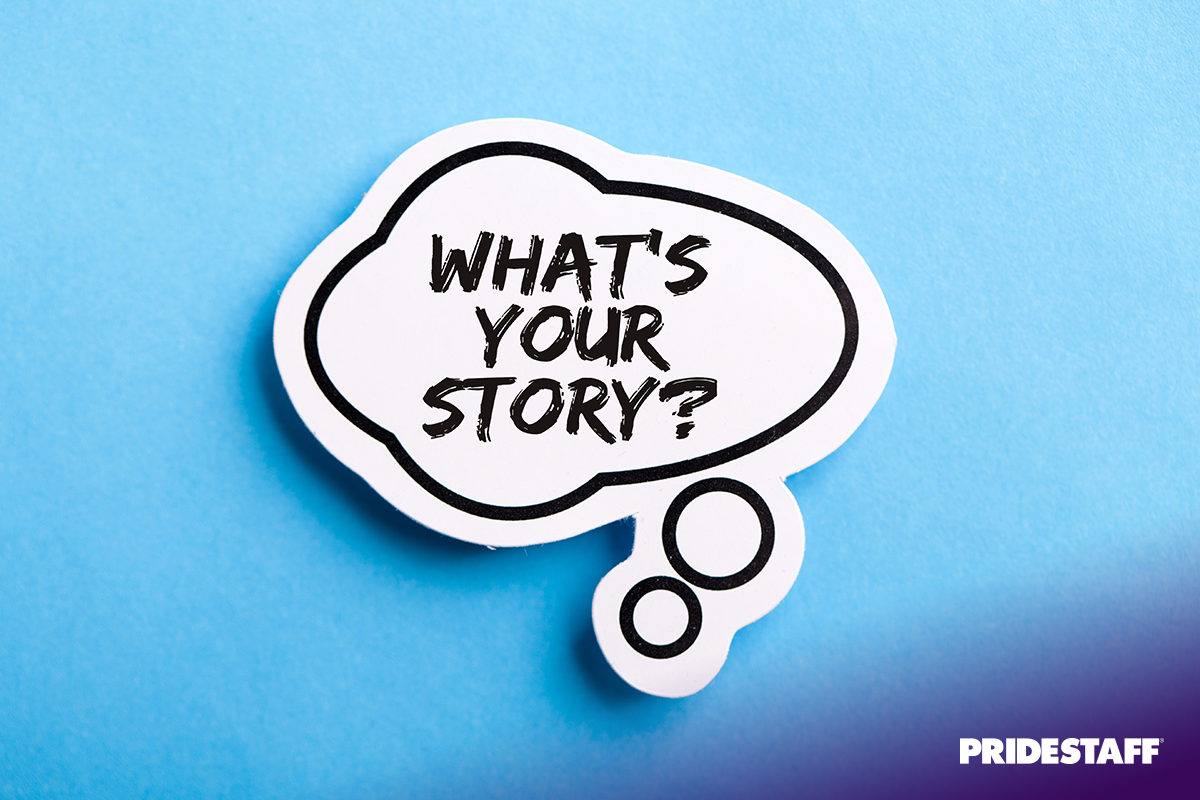What’s Your Story?

In the world of work, the best jobs don’t always go to the most experienced. Or the most qualified. Or the hardest working.
Often, the best jobs go to candidates who have a great career story.
When it comes right down to it, finding a great job is really all about marketing yourself. And marketing is all about telling great stories!
So…what’s your story?
In a job interview, a career story helps you capture attention and position yourself as the best candidate for the role. Here’s how craft a compelling career story – and get hired:
Know what a career story is – and what it isn’t.
In simplest terms, a career story is a brief, chronological synopsis of who you are, what you do (better or differently than anyone else), and your essential attributes. It’s a narrative that summarizes the value you bring to the table, conveys your passion, and explains why an employer should be interested in you.
Follow a logical structure.
A cohesive story creates a sensible order for your audience. Make sure yours has a:
- Beginning. Where have you been? Start your narrative by briefly reviewing how you became interested in your career and got started in your field.
- Middle. Where are you now? Cover your prior roles, accomplishments and transitions up to this point. Stick to high-level information, and highlight major chapters and defining moments in your career.
- End. Where do you want to go? Ideally, your narrative should “connect the dots” and frame the available role as the next logical step in your career path. Include details that describe what makes you uniquely qualified for the opportunity.
Add in anecdotes.
Short, relevant anecdotes convey your passion, provide real-world proof of your claims, and help you make a personal connection.
Be honest.
While it’s natural to want to present yourself in the best possible light, be careful not to exaggerate or embellish. You’ll only create unrealistic expectations and set yourself up for failure.
Don’t ramble.
Attention spans are short, so keep your career story brief (less than two minutes). Once you’ve written your career story outline, put it away for a few days. Review it with a fresh set of eyes, and then edit out redundancies and nonessential information.
Practice telling your story.
Boost your confidence and ensure your narrative hits the right note by telling your story to a trusted friend or relative. While you don’t need to have every detail memorized, your enthusiasm and passion will shine through best when you’ve prepared well for your interview.
Ready to write the next chapter in your career story?
PrideStaff can help you:
- identify your strengths
- evaluate your career options
- build your personal brand
- find assignments and direct-hire positions that align with your career goals
Search jobs near me or apply with PrideStaff today!



